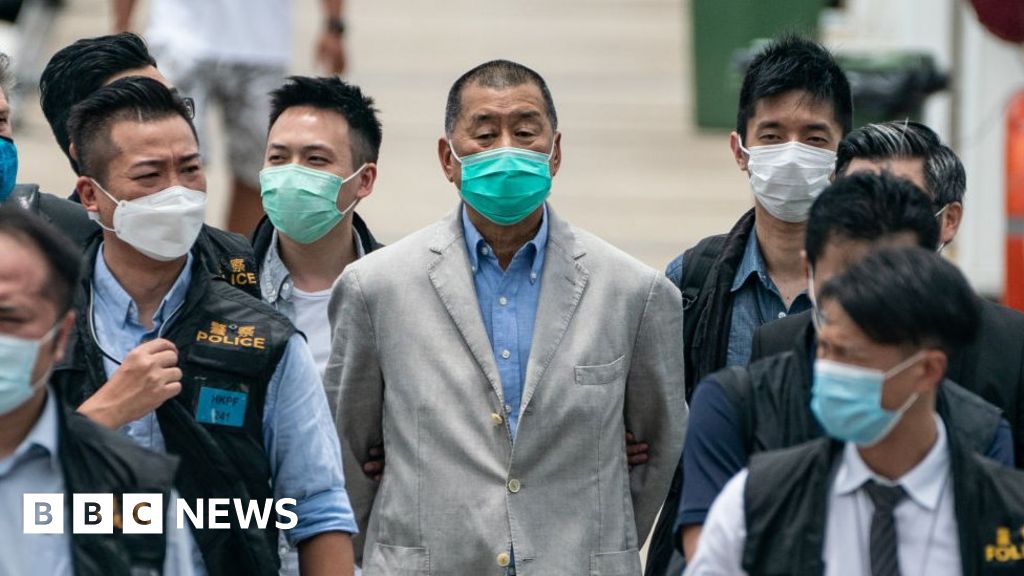Trial of Jimmy Lai Begins in Hong Kong: A Look at the Erosion of Rule of Law
Jimmy Lai, a prominent pro-democracy figure in Hong Kong, has finally faced trial for treason after spending three-and-a-half years in jail. The 76-year-old media mogul, known for his critical stance against Beijing, was brought into the courtroom through the back door, away from public view.
Despite denying all charges and arguing that he was defending freedoms in Hong Kong, Lai faces the possibility of spending the rest of his life in prison if convicted. His trial is seen as a symbol of the erosion of the rule of law in Hong Kong under Beijing’s authoritarian rule.
Lai is just one of at least 250 Hong Kongers arrested since 2020 for allegedly endangering national security. Many of those charged have been denied bail, the right to a jury, and their choice of legal representation. The National Security Law (NSL) imposed by Beijing has been used to target individuals who speak out against the government.
Legal experts and critics argue that the NSL has upended long-standing legal principles in Hong Kong, leading to a situation where the presumption is against the right to bail and where defendants are denied a fair trial. The government boasts of a 100% conviction rate in NSL cases, a statistic that has raised concerns about the integrity of the justice system.
The trial of Jimmy Lai and others under the NSL has sparked an exodus of legal professionals from Hong Kong, further shrinking the pool of legal expertise in the city. The departure of foreign judges and legal scholars has highlighted the erosion of political freedoms and rights in Hong Kong.
As Lai’s trial unfolds, the world watches to see how the case will impact the future of Hong Kong’s legal system and the protection of fundamental rights in the city. The outcome of the trial could have far-reaching implications for the future of democracy and freedom of expression in Hong Kong.


